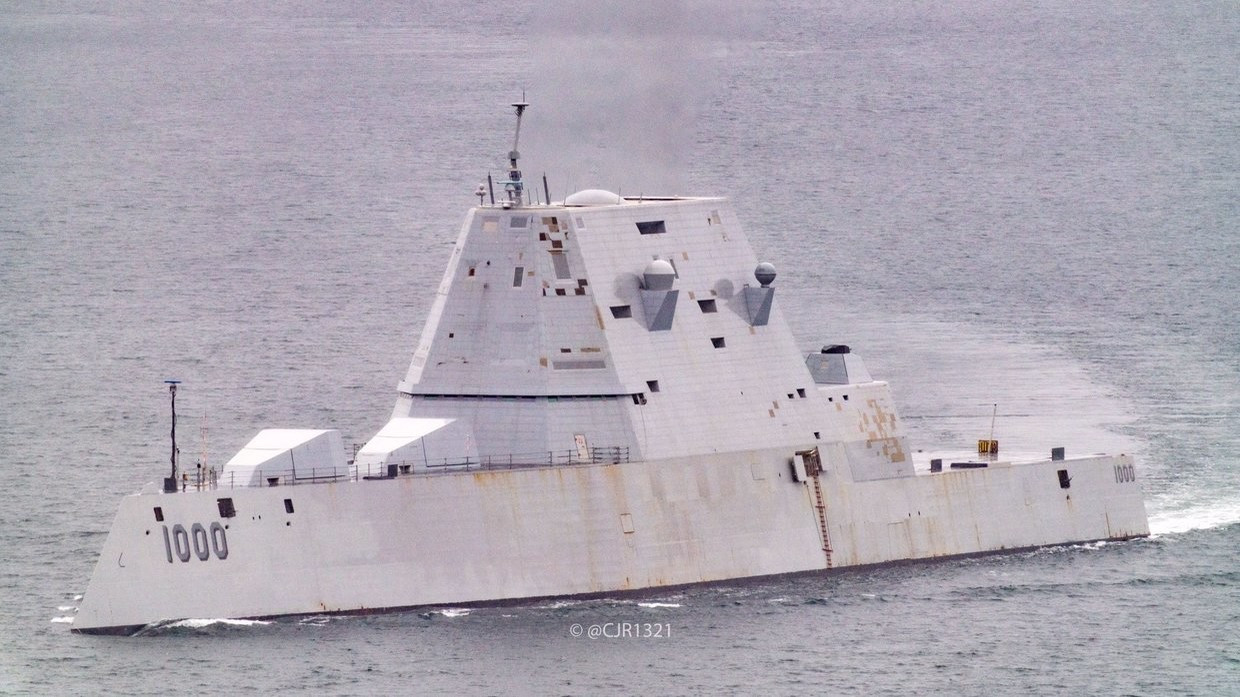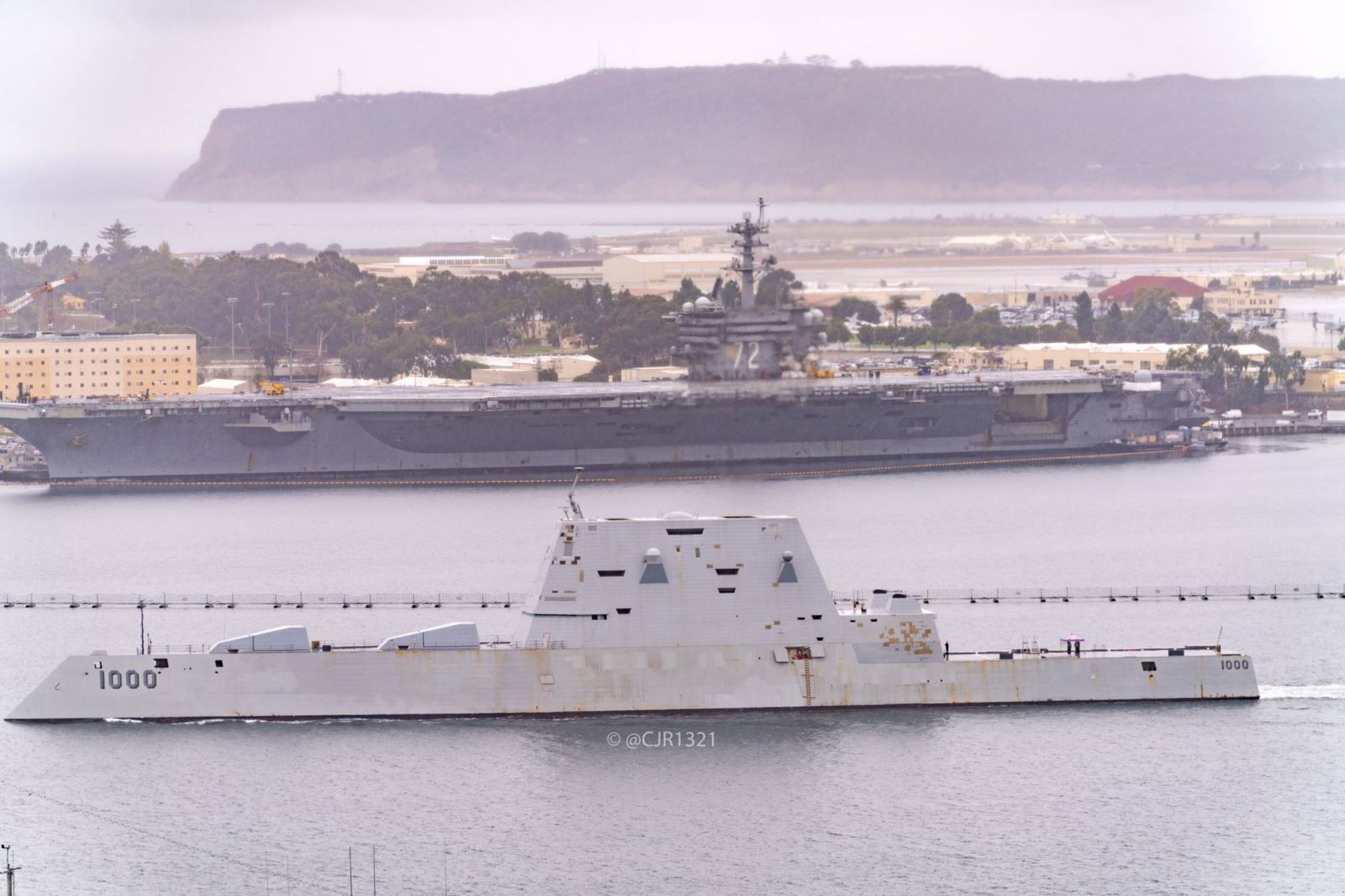Rust color revealed on the US Navy's new stealth destroyer
The USS Zumwalt, a $4 billion guided-missile destroyer equipped with stealth technology of the US Navy, is rusting despite not being put into use.
 |
| US stealth destroyer Zumwalt. Photo: WarshipCam |
RT TV channel reported that state-of-the-art stealth technology has provided the Zumwalt with a radar cross-section similar to that of a fishing boat, despite its length of up to 190 meters.
However, this technology is still not enough to hide the rust problem that the ship is facing. Although completed in 2016, the Zumwalt warship has not yet been put into use.
RT TV channel reported that images that appeared on social media last week showed that while en route to San Diego on December 9, the ship's radar-absorbing shell had turned brown and was covered in rust.(Watch the video below. Source: WarshipCam)
When asked for comment by Drive, the US Navy said it was working to address the corrosion. “The harsh environment in which we operate has degraded the ship, and our sailors are working to address the corrosion, maintenance, and training to maintain combat readiness,” the statement said.
The most expensive destroyer in US Navy history is undergoing testing and training off the coast of California.
The composite materials used on the ship are said to help reduce corrosion, but Drive says its stealth coating could make it more difficult to maintain than the normal surfaces of other ships.
 |
| USS Zumwalt. Photo: WarshipCam |
Another factor that aggravated the rust problem may have been the fact that the ship only had a crew of 175, so there were not enough people to effectively clean the rust.
The images have sparked debate on social media, with some commentators saying the ship’s current condition is shameful, while others say its combat capabilities are what matter.
The USS Zumwalt is the first of three DDG-100-class destroyers of the US Navy designed to support ground forces in land attacks.
The second ship in this class, USS Michael Mansoor, was completed in 2019 and is undergoing trials in San Diego.



